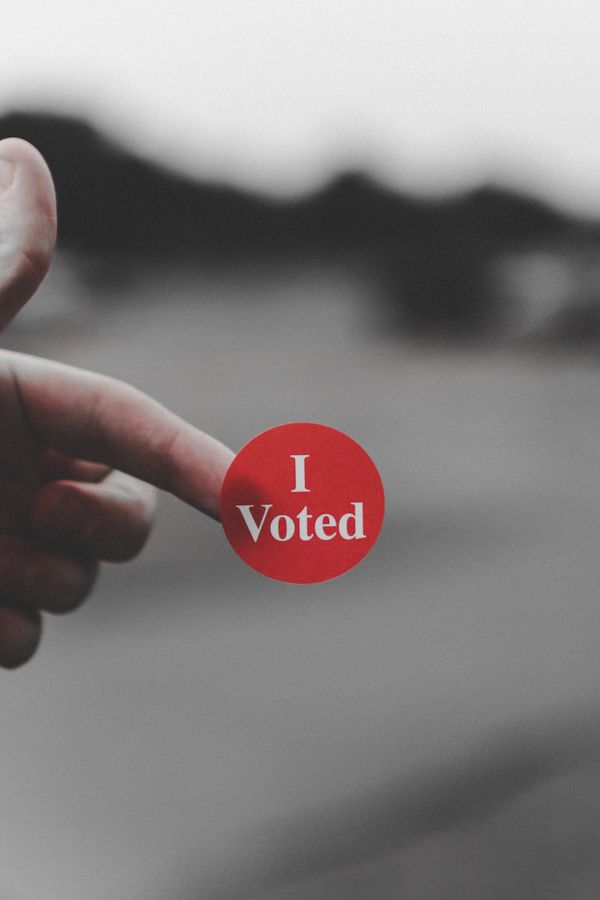I have always tried to avoid political discussions, and I think a lot of young adults can relate. It had always seemed to be a bit dry and an unnecessary cause of conflict. But the main reason I’ve run away from these conversations is because I never felt educated enough on the topic.
Unfortunately, I never tried to become educated. Delving into the entire world of politics and attempting to know enough to have well-reasoned opinions is a daunting task. I didn’t want a minimal amount of knowledge to cause me to say ignorant things. So instead, I decided to have no knowledge, thus not allowing myself to say anything at all, yet consequently, leaving myself in complete ignorance.
Recently, though, my thoughts on this have changed. I turned 18 and gained the right to vote, I went to college and encountered people with political perspectives like nothing I had ever heard at home, and, as a Communication major, I have tried to be more up-to-date on world news. All of this has caused my interest in politics to grow. Not immensely, but enough to realize that separating myself from politics is not only impossible, but immature and, quite honestly, stupid.
**Disclaimer** Below, I will try to explain why you and young people everywhere should educate themselves on politics. I am just beginning this process myself, and my political knowledge is nowhere near complete. I just hope to share my thought process as I begin and continue on this journey of political education.
As young adults, it is critically important that we have political knowledge and use that knowledge to vote for what we believe is right for this country.
Unfortunately, many young adults don’t exercise their right to vote. An analysis done by the U.S. Census Bureau from 1964 to 2012 explained that “in every year of this analysis, young adults had voting rates below all other age groups.” In fact, in 2012, only 45 percent of citizens between the ages of 18 and 29 voted.
Less than half of young adults in this country are voting. And why is that? There are three main excuses that people (including myself) give for this.
- “I don’t care about politics/the election.”
- “My vote won’t matter, so what’s the point?”
- “I don’t know enough about the election to vote.”
All three of these are problematic.
For those who say they don’t care, I ask, why not? These elections affect your life and your future. The economy, the job market, foreign affairs, welfare—even if these things don’t seem to directly affect you now, the people who are elected to make decisions will be doing things that will have a huge impact on your future. It’s time to start caring about that. And if you can’t wrap your head around the future, consider the political decisions being made about education. Are you concerned about tuition? Student loans? This affects you now. You can’t guarantee that anyone else will look out for your interests except you. Students and young adults need to vote to make sure that their voice is heard.
For those who think their vote won’t matter, please get rid of this mindset. Many young people are frustrated because they feel that the government is controlled solely by the older generation and mainly benefits these older people. Of course, one vote doesn’t make a difference, but consider if the other 55 percent of young adults voted. That could make a difference. If you’re not voting, you’re not helping.
For those who think they are not educated enough to vote, I can relate. This has been my excuse for the last year and a half, during which I have been of voting age. However, I have learned that becoming knowledgeable about politics and political candidates is not as difficult as it seems.
Here are my suggestions on how to become educated on politics and political candidates:
- The responsible way to vote is to educate yourself on each candidate's views rather that use party lines to dictate your vote. I suggest checking out www.isidewith.com. This website provides a quiz on various political issues. After looking through and choosing what ideas you agree with, the site shows you how much you agree with each candidate.
- Of course, you should not use a quiz alone to decide your vote. I suggest checking out non-biased news sources that discuss different candidates.
- In addition, watch interviews and speeches of each candidate. You should vote for someone that you trust and have confidence in.
- The presidential election is the prevalent topic right now. But you should also pay attention to local elections. The president is surely important, but he or she can only do so much. Each member of the government is important and makes a difference.
- Apart from elections, it’s important to stay updated on politics and current news. This helps you to avoid ignorance, be educated on the world you live in, and be able to hold intelligent conversations. You don’t have to read a 20-page newspaper every day to do this. A simple way to stay updated is to follow news accounts on Twitter.
I hope you will join me in my mission to become a more educated and politically active member of society. If we want our government to truly be representative of our citizens’ voices, then we need to be prepared to share ours.













































